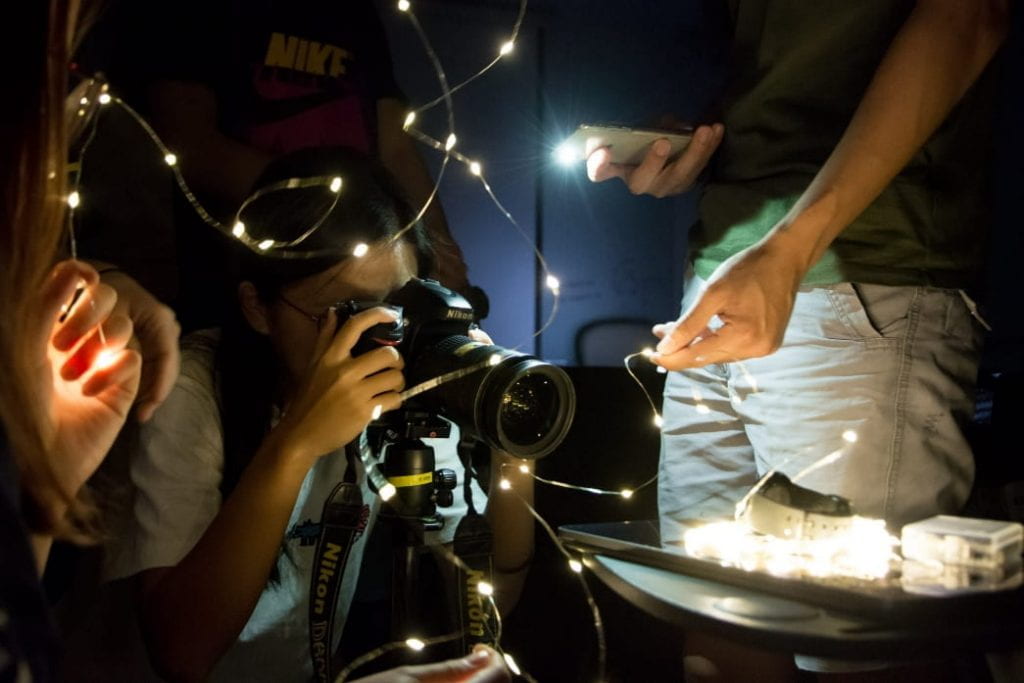SEAH Zong Long
NUS Graduate School for Integrative Sciences and Engineering (NGS)
King Edward VII Hall
Zong Long reflects on his experience in developing the module “Art and Science of Photography”, for a
“Design-your-own-module” (DYOM) initiative.

Photo courtesy of SEAH Zong Long.
What happens when you try to approach an interest academically? Gamers spare no effort throwing in formulas to maximise their equipment, car tuners study all about aerodynamics and thermodynamics to shave a few seconds off the clock. Learning about a topic that you enjoy is not a chore, and with the intrinsic motivation to seek out extra knowledge, both reception and retention of new information is expected to be excellent.
A few photography enthusiasts from King Edward VII Hall came together to propose a module aimed at answering the ‘why’ of photography. Many photography clubs equip members with technical skills and composition techniques – the ‘how’ of photography – like how to take a picture under poor lighting conditions or how to better frame your shot. However, not many know why: why these settings help your photo turn out brighter, or why that framing makes the photograph look good. To answer these questions, an interdisciplinary approach to photography is required: the physics, engineering, history, and psychology of photography, amongst others.
This student-led “Design-your-own-module” (DYOM) initiative, named the “Art and Science of Photography”, serves as a holistic, academic approach to photography, complementing hobby photography. Apart from the interest-driven desire to learn, the module also adopts two key learning strategies:
- Learning by Teaching: Cooperative, seminar-style classes allow students to research a topic in depth, yet be exposed to a wide breadth of topics. Being a DYOM, we are in a unique position where students come from all different majors, bringing with them different perspectives and strengths.
- Experiential Learning: Students design, facilitate, and participate in hands-on activities meant to reinforce concepts introduced in class.

A trip to the Vintage Cameras Museum, where students were given a detailed account of the history of cameras, and even get to try some of the cameras themselves.
Photo courtesy of SEAH Zong Long.
Some say you learn the most when you are teaching others. Only when one is confident in the intricacies of his craft can he distil important concepts and make it accessible for the layperson, yet enthuse others who are similarly technically inclined. Likewise, in this module students have to do adequate research on their respective topics of interest, break it down to make it accessible to photography newbies, logically build up the understanding of the class towards more difficult concepts, and also plan an activity to round off the learning. It is arguably easier to present the research materials in a technical presentation, but the act of extracting key ideas and making it accessible means that the student will really have to process his content mindfully.
Feedback from the students revealed that they found the hands-on components the most helpful in reinforcing concepts learnt in the lessons. For example, being able to see exactly what changing the aperture size or shutter speed does to your photo after a lesson on these topics really solidifies the learning experience. The theme of experiential learning in the module is carried on to a camera museum field trip, where students get to tinker with vintage cameras.
Over the course of the module, I have found that my appreciation for the various aspects of photography has deepened, and I am more mindful of each action I take as a photographer. Being able to design our own module has also presented a great opportunity for us to share about what we like, and to see everyone enjoy as they learn which is extremely encouraging. In short, being able to learn what they like, learn as they teach, and learn as they do allow students taking this DYOM to have a meaningful and satisfying learning experience.
 |
SEAH Zong Long is a graduate student at the NUS Graduate School for Integrative Sciences and Engineering (NGS) and Graduate Fellow at King Edward VII Hall. He is also a facilitator for the module DMY1401KE “Art and Science of Photography”. With his background in Physics and keen interest in photography, it is easy to see how the module came about. Zong Long believes that everyone should have a basic appreciation of science to combat ignorance and drive innovation, and the key to dispelling the masses’ aversion is effective scientific communication. Zong Long can be reached at seahzonglong@u.nus.edu. |


Thank you for sharing, how to make a great article like this?
nice info bro thanks